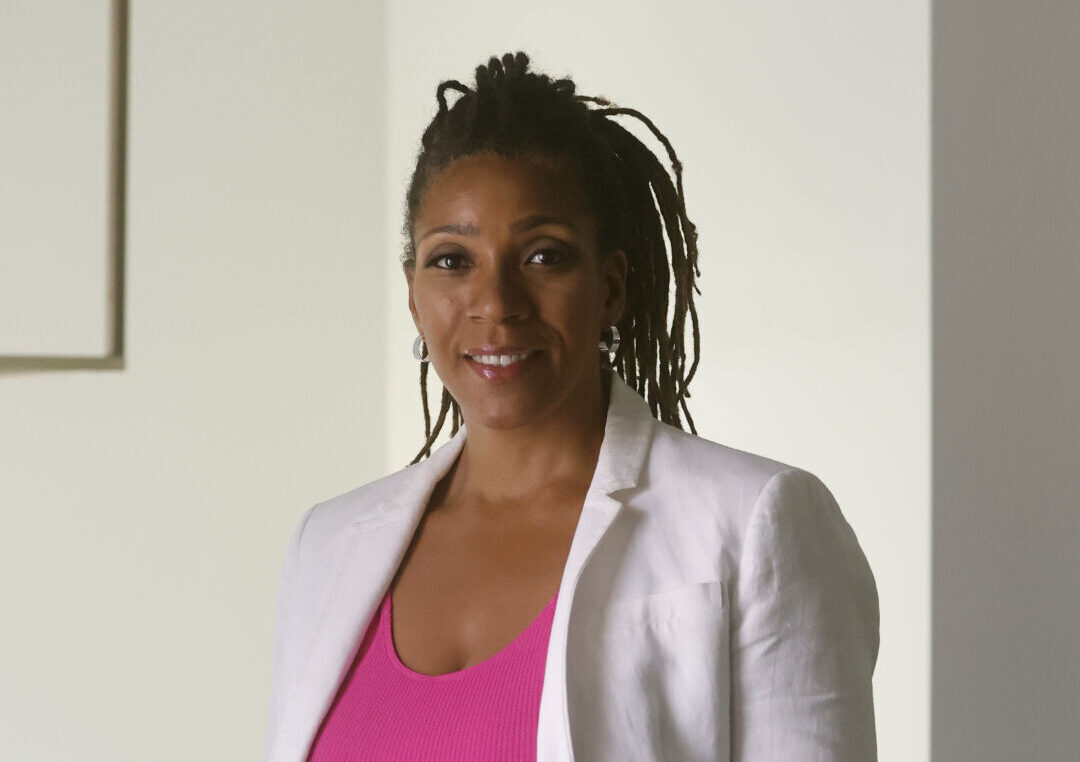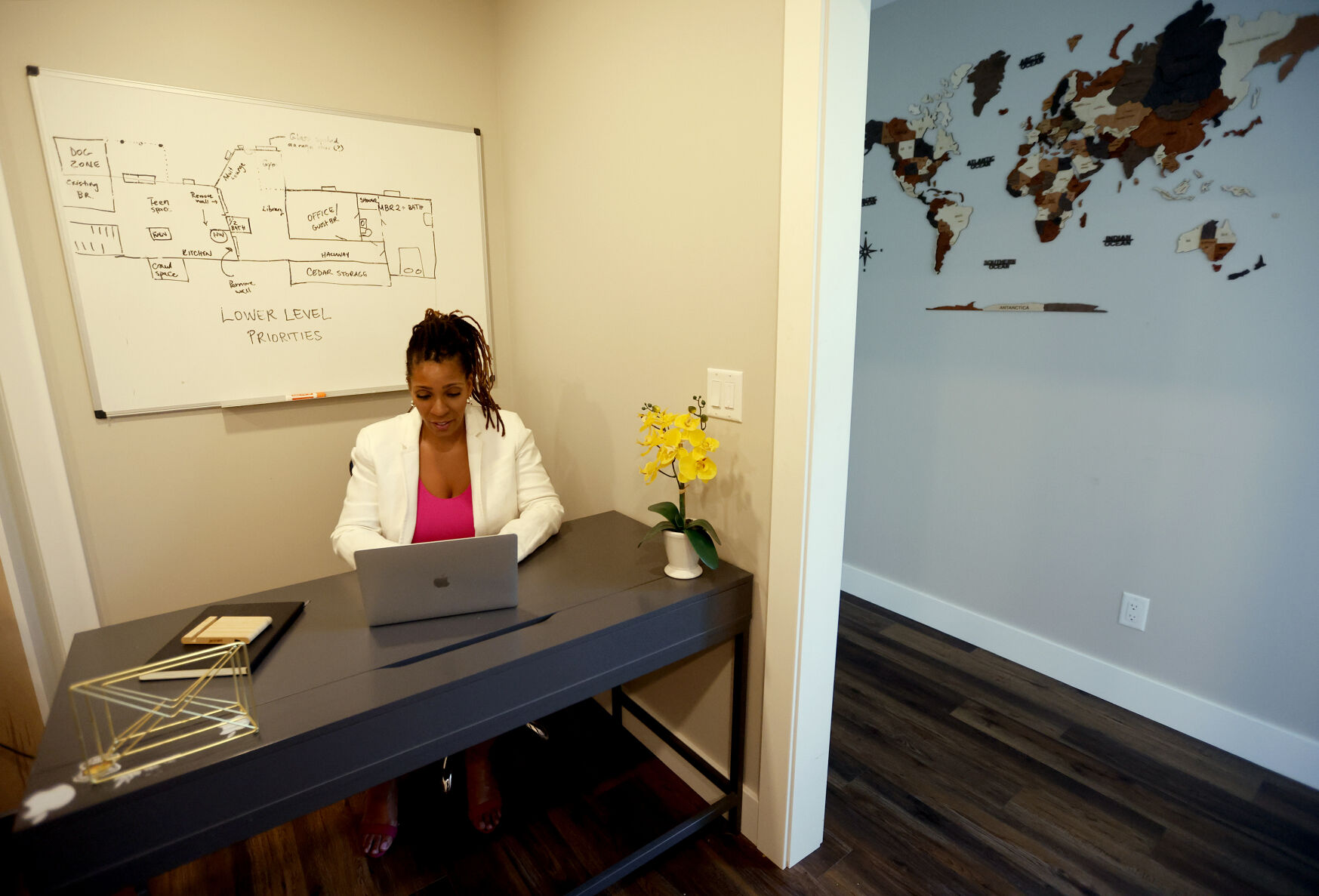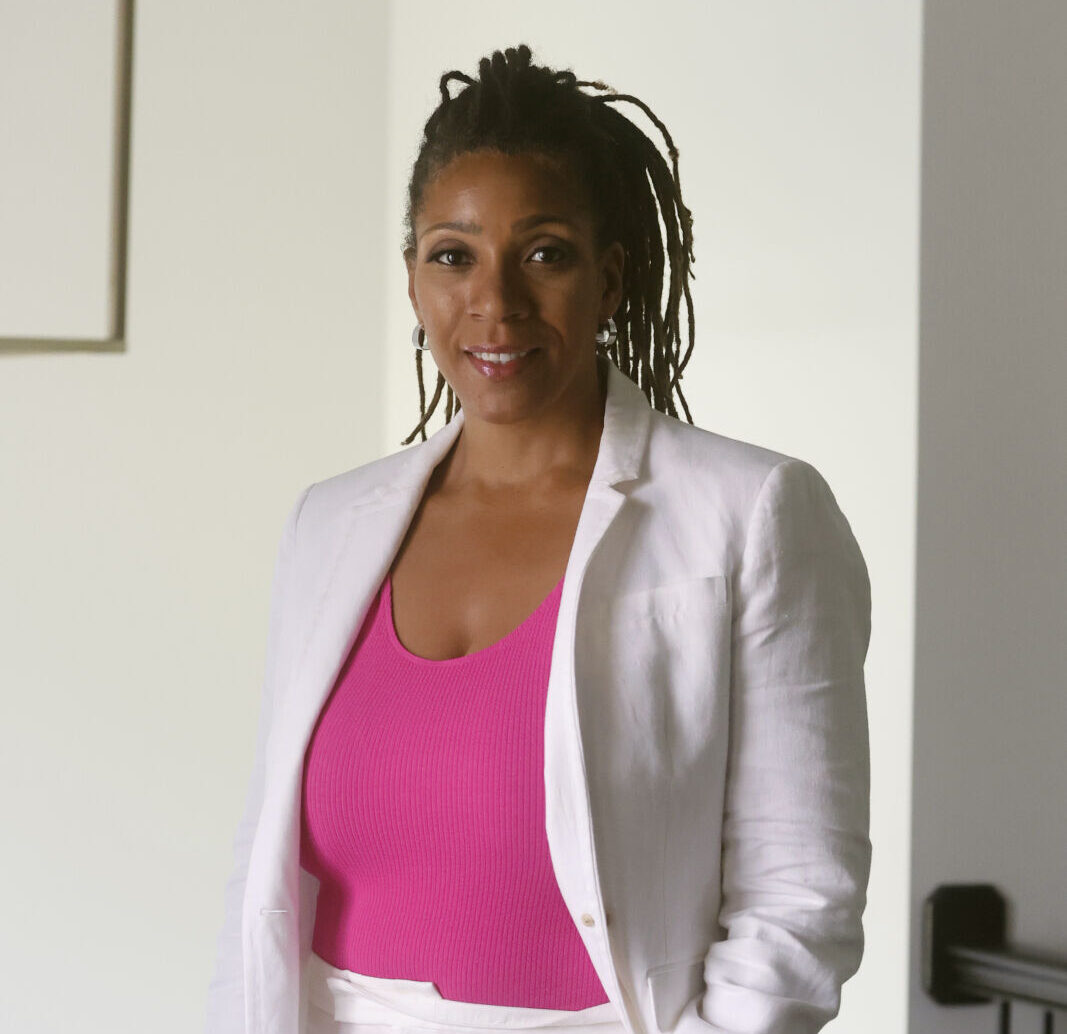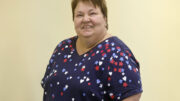Yindra Dixon is a real estate developer in Dubuque. She is the owner of Nia Neighborhoods Opportunity Zone Fund and Hidden Oaks Development.
She serves as the chair of the Housing Commission for the City of Dubuque and sits on several boards including Dubuque Initiatives, the Dubuque Y and the Community Equity Advisory Committee for the Dubuque Community School Board.
She holds a Bachelor of Science in materials science and engineering from Carnegie Mellon University and a Master of Business Administration in finance and international business from New York University.
She is married and is currently navigating “teendom” with her three children.
Tell us about your field and what attracted you to it.
Nia Neighborhoods was started out of a market need we observed upon moving to Dubuque. Housing crises exist all over the country and in a community that is desperate for growth, having sufficient housing is a critical catalyst.
With the recent passage of federal Opportunity Zone legislation, we were able to target our development in communities that need it the most. In Dubuque, having high-quality, affordable housing in low-income neighborhoods is pivotal as stable housing is an important determinant of health and economic success.
Dubuque’s home ownership statistics for people of color are far below the national average. Improving housing quality and increasing home ownership were two areas where we felt we could make an immediate and considerable impact.
We purchased several homes with the intention to provide safe, attainable housing, increase property values, provide homes with larger capacity and revitalize communities. We also wanted to invest in divested neighborhoods to improve the curb appeal, housing diversity and availability.
How has your field changed in the time you’ve worked in it? How have you adapted? The biggest two changes to the industry have been supply chain and interest rates.
The supply chain issues began during the pandemic. Getting construction materials was very difficult, causing delays in renovations at every stage. During that time, the phasing of projects and the scope of projects changed dramatically to accommodate available labor, materials and supplies.
The supply chain delay has softened a bit, making it easier to complete projects. The lingering effects are planning in advance, ordering supplies earlier in the process to ensure they are available for the project and developing relationships with suppliers and finding alternate sources for project materials.
Interest rates have had another large impact on the industry. Higher interest rates drive up demand because fewer people will sell homes when the cost to purchase homes is more expensive. Interest rates also make it more difficult to finance projects as the cost of money is higher. Higher costs for assets, land or money impact the overall viability of projects.
We are still in a volatile interest rate period and I suspect that Nia will respond by limiting new property purchases, holding construction loans for longer before converting them to permanent debt and even delaying some projects.
Is there a person or people who have had a tremendous impact on you? As a female entrepreneur of color, my influences have been many, starting with Madame CJ Walker, the first Black female millionaire, and of course, Barbie. Barbie’s dream house is where it all began. I had no idea the Lego “pool house” and Lincoln Log “summer cabin” that I built for Barbie and friends were the beginning of my real estate portfolio. Knowing success was possible for me and having a creative outlet so early to develop a passion for development have truly helped me on my way.
I have had some incredible mentors over my life and I would be remiss not to mention the support of my husband and family.
However, locally, I would attribute much of my success to women like Mary Gronen, who have paved the way for female-led organizations to be more mission driven and still profit motivated.
While my company is not structurally a B corporation, I do want to solve a housing need for communities that continue to be marginalized. As a developer, I have to seek out collaborative partners, grant opportunities, suppliers and contractors who share my vision and values. In a White, male-dominated industry, finding female mentors and role models can be difficult. Having Mary as a mentor and supporter has made me more successful — personally and professionally.
Mary did not have a formal real estate background when she started, but she has helped to grow a business that is not only an economic powerhouse in the community but also a respected and beloved employer. Her “people first” philosophy demonstrates the lucrative balance of compassion and profit. She is a fierce advocate for people of color and women, using her philanthropic investments and business investments to improve so many lives. Most importantly, she is a mother and shares her story with others so they may learn how to navigate the challenges of motherhood. Her frankness, transparency, experience and generosity are all things that have positively influenced me in my work.
Do you have any advice for young people and/or new graduates? Real estate is still a consistent source of wealth and long-term residual income. Buying a house or condo or owning land as soon as you can is a great way to build wealth. Take advantage of every first home buyer program. Learn from YouTube or TikTok about the home-buying process and learn the language of home buying. These will equip you to be able to provide long-term benefits to your family even if you are a first-generation home buyer.
Also, life is not TV. Renovations and home improvements do not typically happen in the time and style that is shown on TV. So, unless you are already fully knowledgeable in do-it-yourself home improvement projects, don’t take that burden on too early. Find something that is live-in ready and then utilize the newer finance, construction and policy tools to grow from there. Taking on too much too soon can be catastrophic financially, physically to the project and emotionally. Slow and steady really does win the real estate race.
Is there a story or an anecdote that illustrates your philosophy either in life or in your chosen field? I think there are two main mantras that guide me in my work: “To whom much is given, much is required” and “the journey is the reward.”
I have had the unusual privilege of living in many places with different demographics, climates, education systems, political leanings and sizes. I have learned so much about those places and the people who inhabit them. In each community, I have advocated on behalf of marginalized communities and tried to impact change. I am confident that my advocacy left each place a little better than when I arrived.
My journey has led me, in this moment, to recognize how important a thriving downtown life-work environment is to the growth of this community and how historic divestiture in the urban core has created an ethos of less-than.
My company, Nia, which means purpose, was created to reinvest, rehabilitate and revitalize the communities where we have invested. People who want to stay downtown should have housing options that work for them as their families grow and flourish.
If we are not going to let people control their family size, we have to continue to provide housing options to meet those demands — larger floor plans, multi-family buildings and diverse ownership options like condos. Urban living in walkable communities also has a positive climate impact.
I am still on my journey but every new home or project, including the ups and downs of unreliable contractors, dishonest vendors, unknown structural issues, higher prices, bureaucracy and volatile interest rates has been a reward.
The first house we completed in Dubuque we rented to a single mother of five. During the walkthrough with the new tenants, her children skipped around and admired so many features of the home. Her oldest daughter, a 10 year old, twirled around, arms outstretched and said, “The house is beautiful.”
That moment of pure joy was indescribable. But it is truly why I do this work, because everyone deserves a beautiful home in which to feel safe, secure and happy.
What have you found to be the most valuable resource for learning? Are you an on-the-job learner or do you prefer another way? I have an undergraduate degree in engineering and a master’s degree in business, so I do believe in investing in formal education. However, I do strongly believe that experience is the best teacher. In order to promote equity in industries like real estate development, providing as many ways for people to get information is ideal.
I have learned most of what I know in this industry from meeting and talking to people in the industry, understanding their philosophies, employing their strategies, reading suggested books and, definitely, learning on the job.
I encourage people to find experts and surround themselves with people who know what they are doing and hold similar professional values. No matter how old you are, you can always learn from others. Keeping an open mind and being curious is tantamount.
Math vs. creativity. People person vs. introvert. Slow and steady vs. quick and nimble. Where do you fall on those divides? Do you believe there even is a divide? While I recognize the divides, finding a balance between those dichotomies is crucial. As an engineer, I would say I fall on the math side, but I have a strong eye for design. I also love art and music even though I am not good at creating either. I am an introvert who understands the value of business networking and relationships, so I am willing to push myself into uncomfortable situations to engage, learn and grow. As an entrepreneur, I must be quick and nimble.
Specifically, in the real estate industry, you have to be able to make decisions quickly while also being prepared for the lengthy and often complicated processes of transactions, construction, grant management, etc.
Fundamentally, I think it is important to have the self-awareness to know on which side of the divide you fall and to mediate that with people and resources to keep it in balance.
When you think of the future, what kind of changes would you like to see in your field? In the broader world? Housing is a fundamental need and a basic standard of living should be accessible for all people. Attainable housing will drive growth in our community and provide a sustainable means for entrepreneurship and economic development.
Housing will continue to be a crisis until we balance out wages. There are systemic changes that need to take place in the housing department and the city at large to address the true existing needs of the community versus the perceived needs we claim to solve. Data needs to be consistently captured and reported.
Subsequently, we must use the data to make the best decisions even if it challenges our beliefs. I would also like to see robust changes to how we support developers at all income levels with grants, loans and financing tools that make it possible for residents to organically grow the economy and support their neighborhoods. It will take a culture shift in Dubuque to accomplish these things.
Complacency and apathy will have to give way to innovation, calculated risk and unbiased investment. Change will take the right leaders and mindset. The future is now.
How has your professional life helped you grow as a person? Providing high-quality housing is very rewarding. It gives me purpose and fulfillment. It has also helped me develop a deeper sense of empathy. It has allowed me to be more introspective about the privilege of stable and secure housing and the benefits I have received.
My work requires me to think broadly at the 50,000-foot level and narrowly at the square foot level. Seeing my work as an asset to the community has broadened my perspective on the climate impact of construction as well as making me hyper aware of the local impacts to the noise level, blighted look of works in progress and even the dust or debris we create in the process.
Overall, my professional life has helped me develop a more holistic perspective of my personal impact and the impact of my work on the neighbors, the community, the city, the state and the world.
How do you strike a work/life balance? I prioritize my family and my self-care above all else. I have to be my best self and my environment has to be stable in order for me to be productive.
Therefore, I have set boundaries on the time I spend working or thinking about work. While the schedule can prove to be nontraditional due to tenants’ work schedules or events that happen in evenings, I limit my weekend work hours and I make a point to be present for my husband and children when required.
No one ever wanted to work an extra hour, but they would give anything for one more minute or hour with loved ones.









